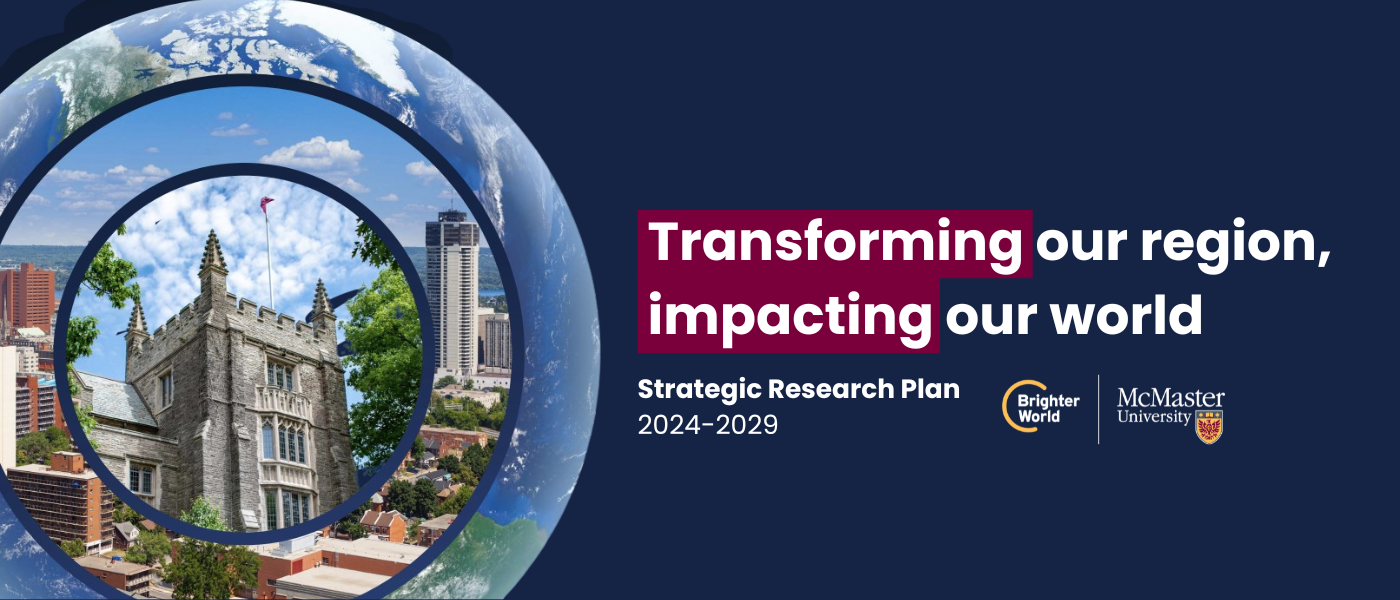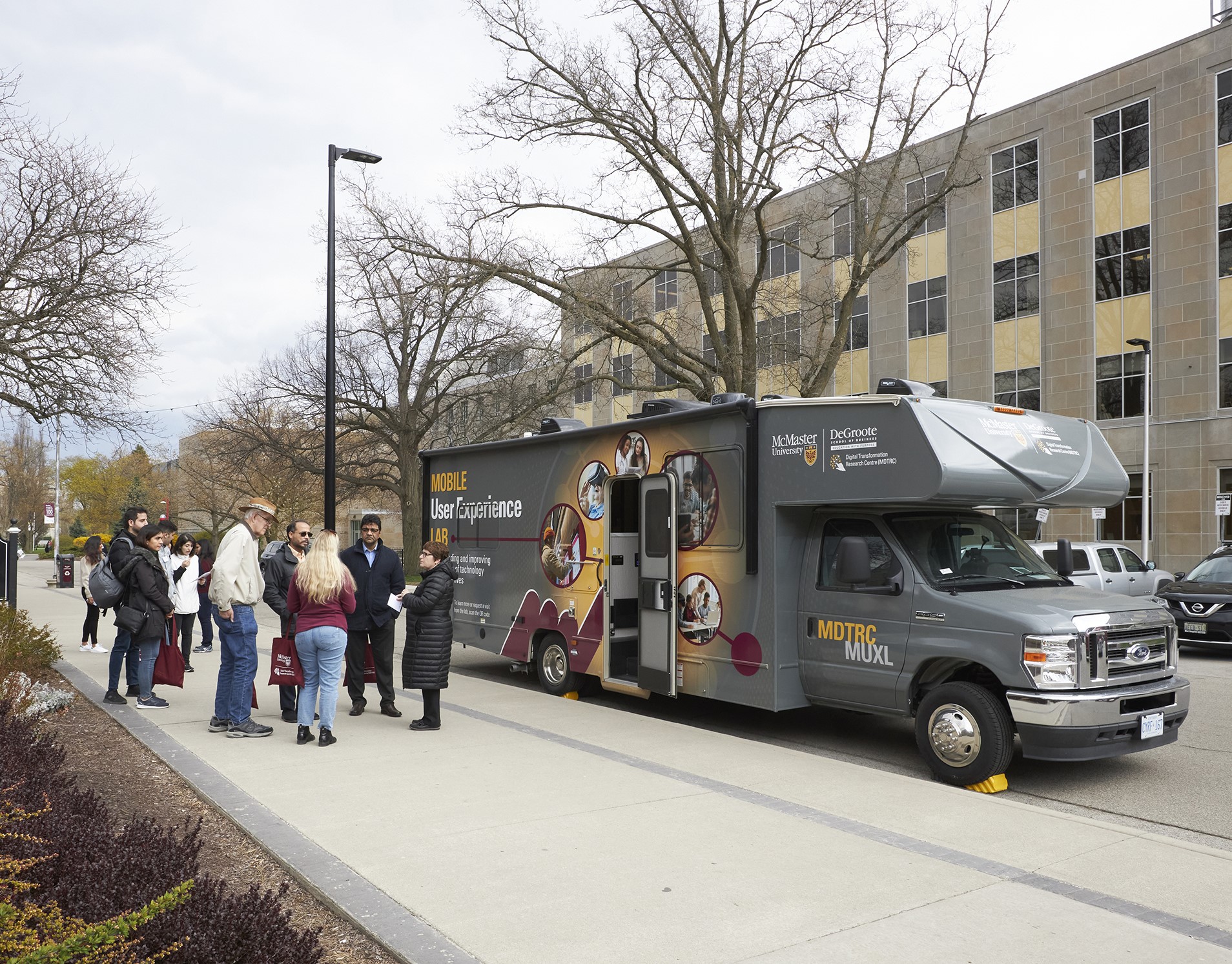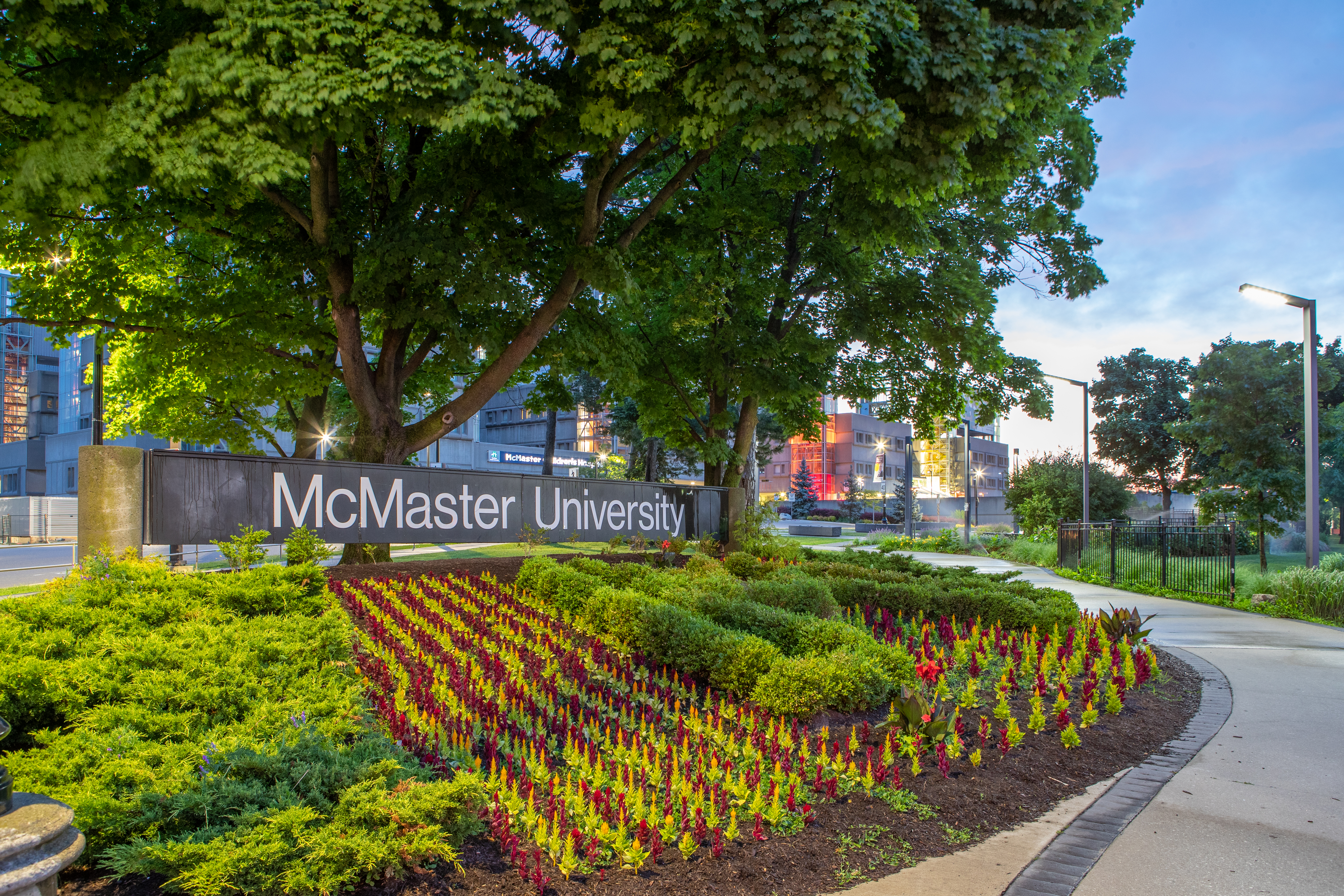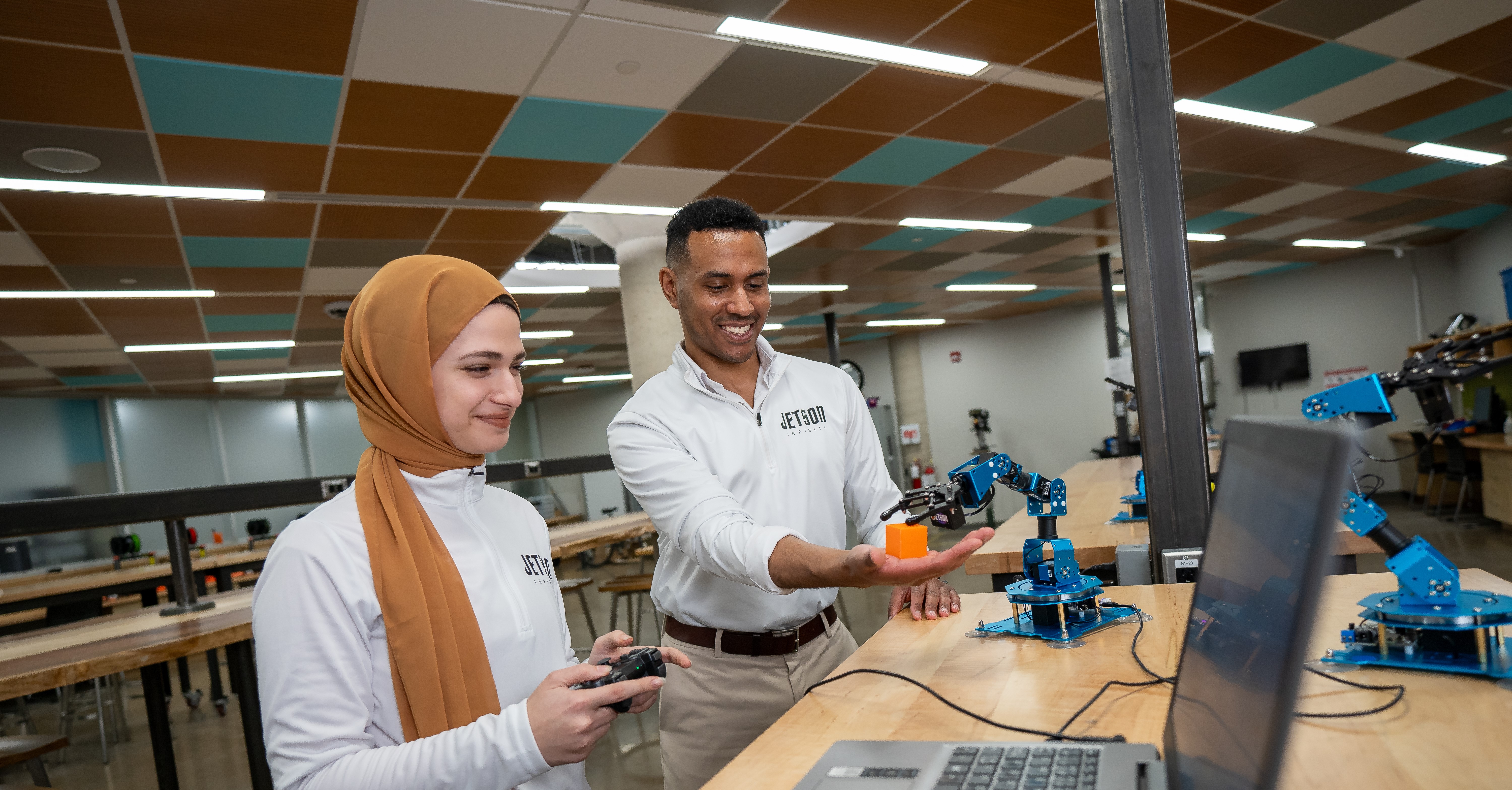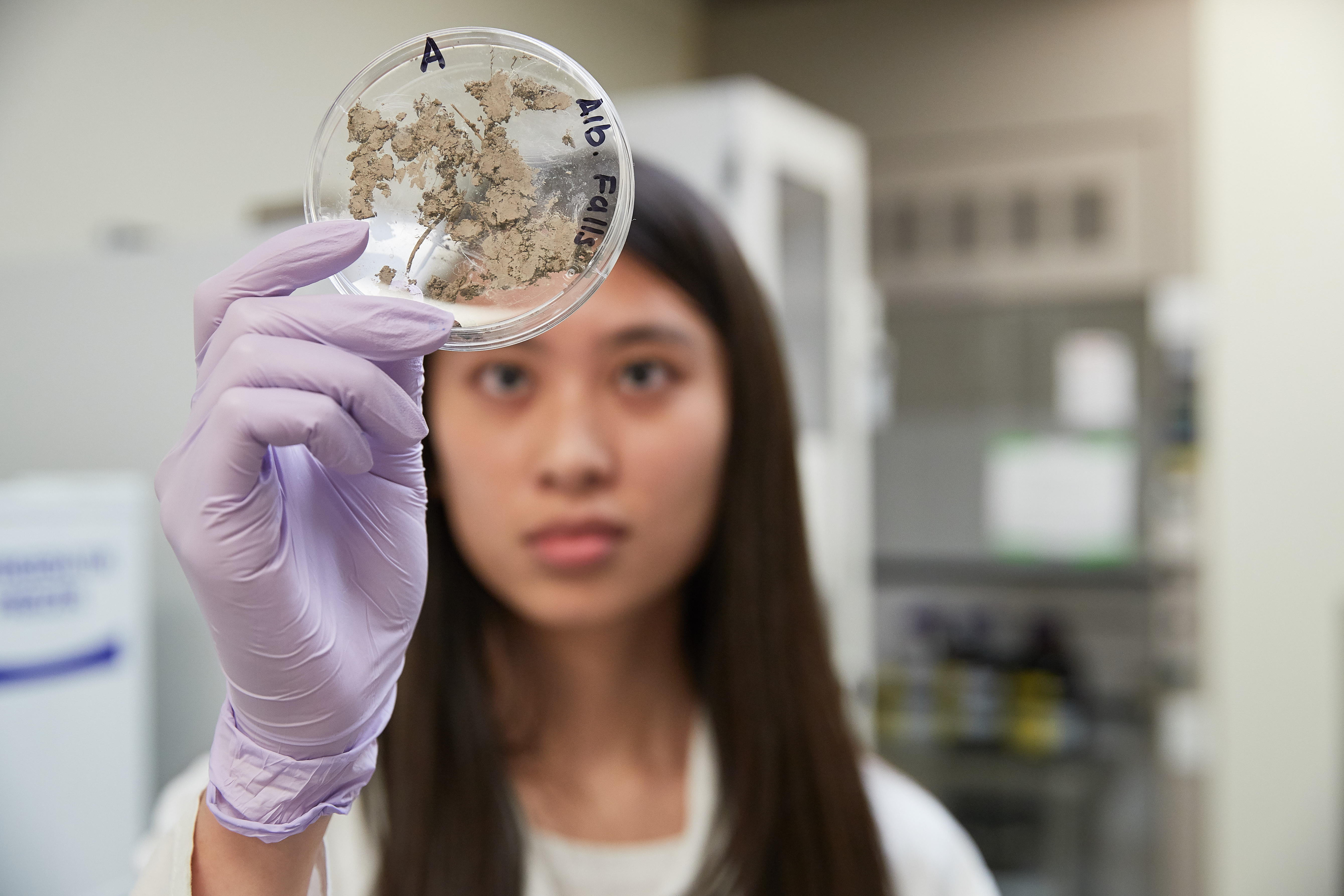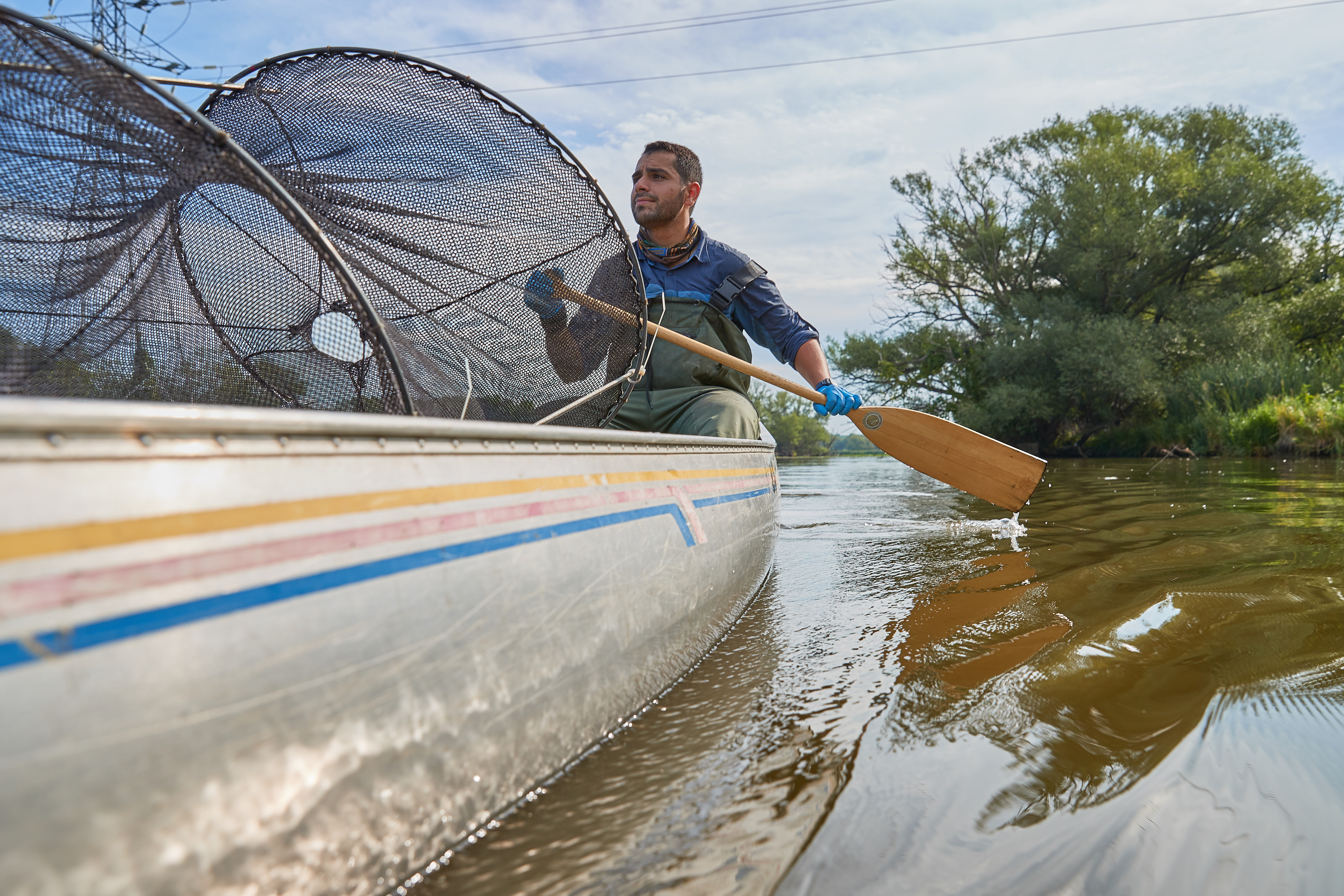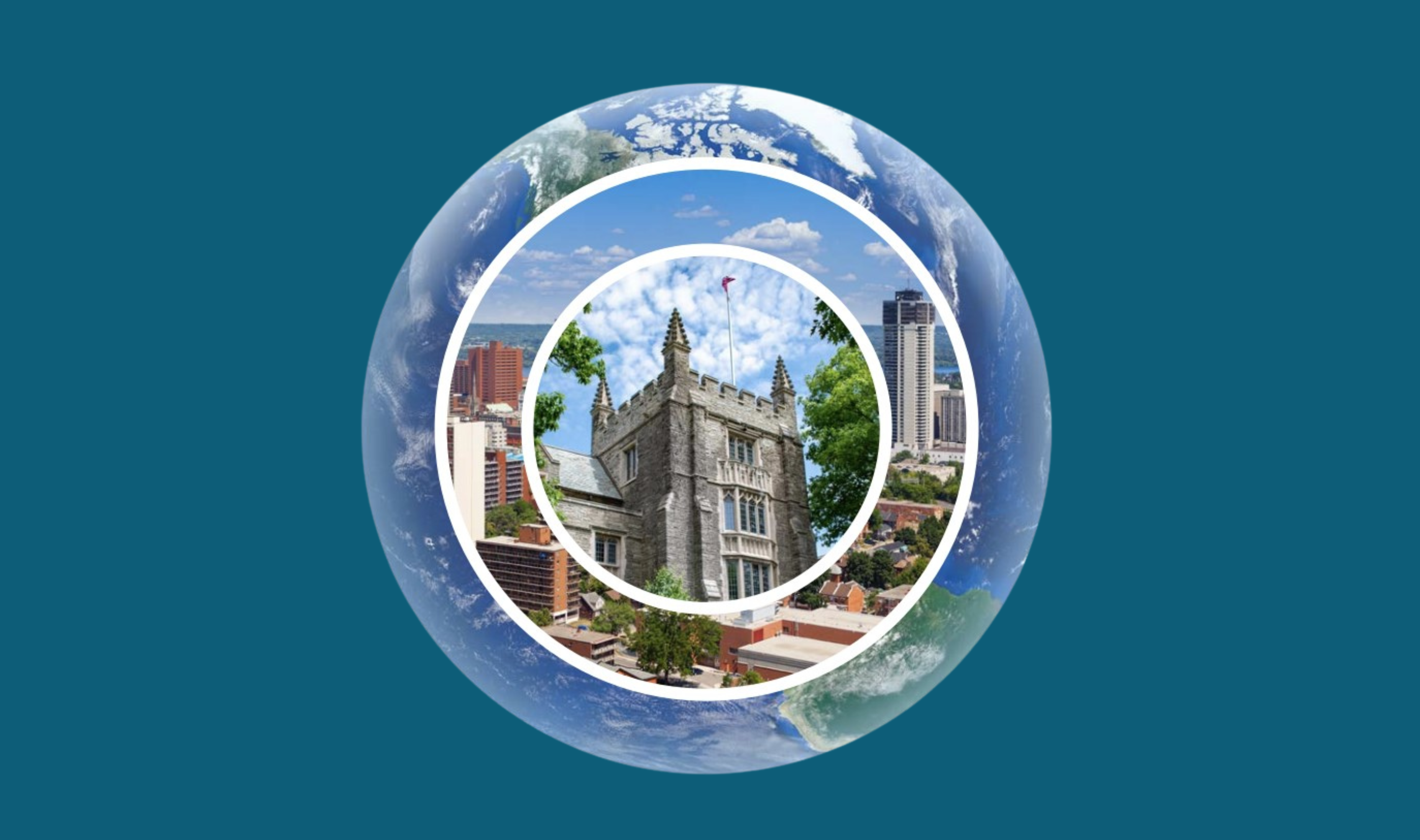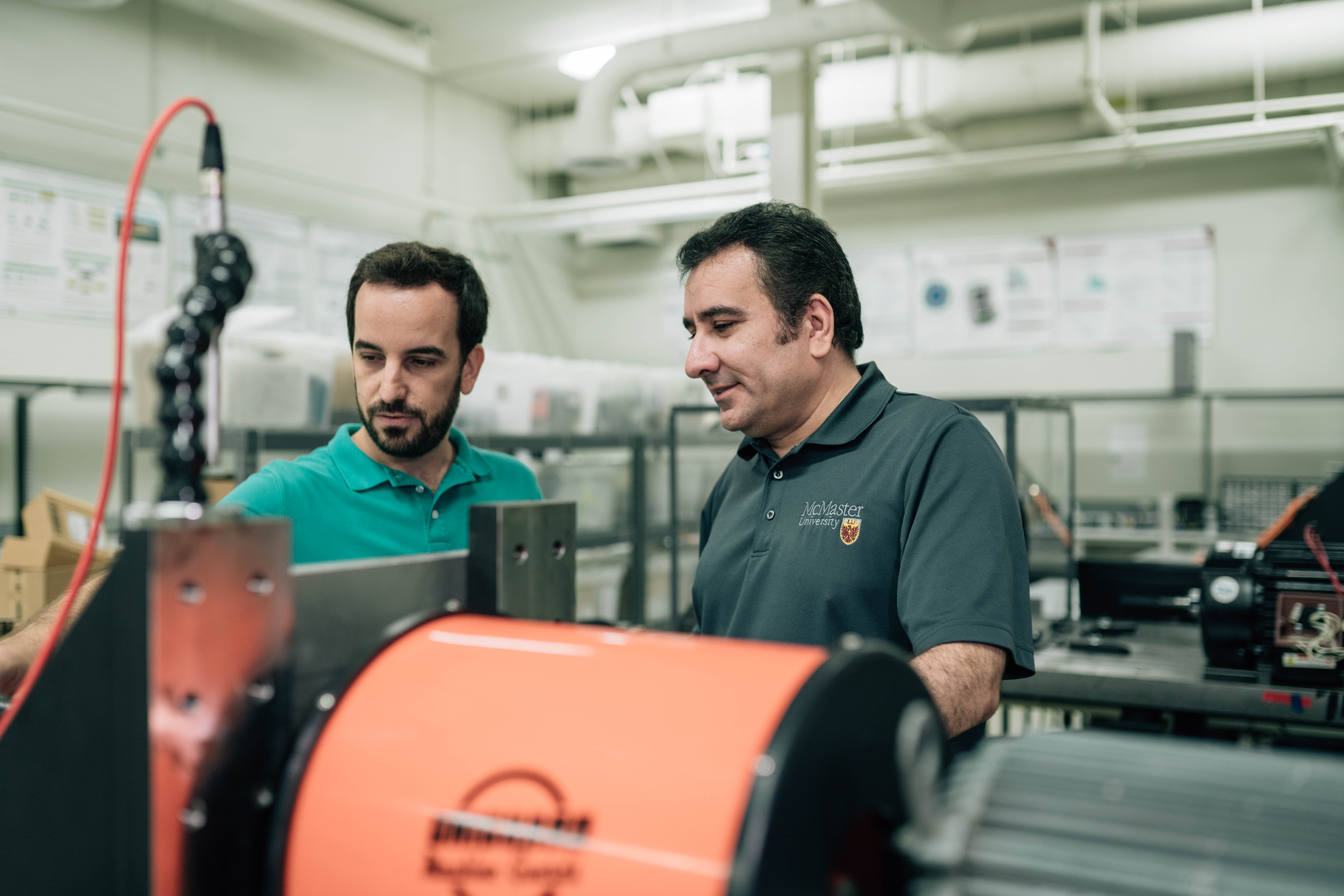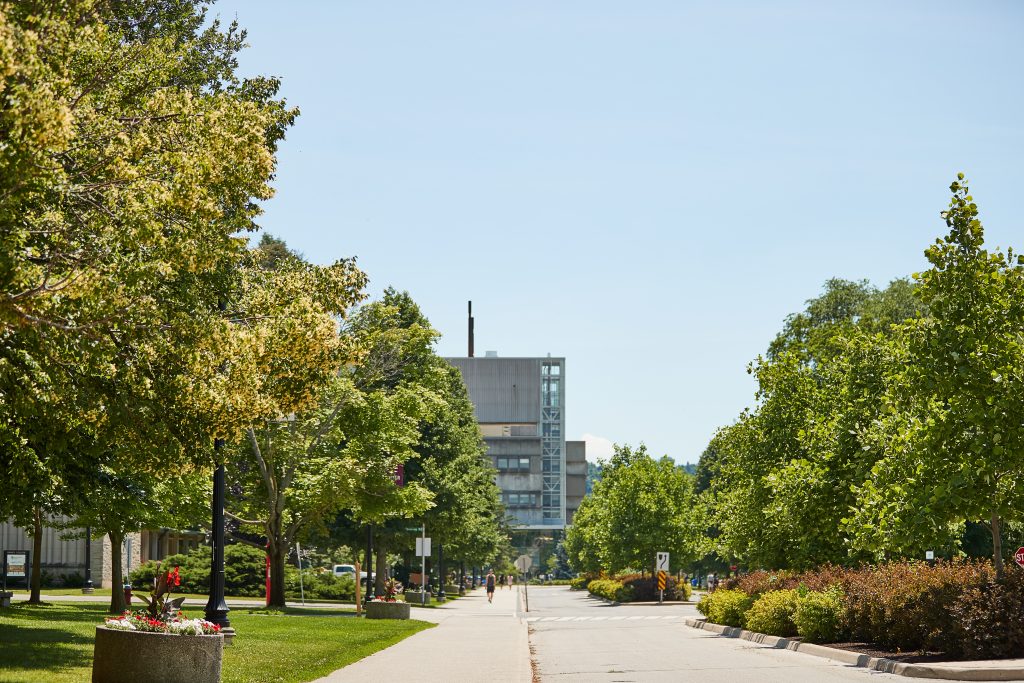Strategic Research Plan 2024-2029
Land acknowledgement
McMaster University recognizes and acknowledges that it is located on the traditional territories of the Mississauga and Haudenosaunee nations, and within the lands protected by the “Dish with One Spoon” wampum agreement.

Mobilizing knowledge to maximize impact is at the core of our mission.
We strive to better lives in meaningful ways by expanding knowledge across the entire research and innovation ecosystem – from fundamental discovery to mission driven application.
We innovate together to address the most complex challenges. Collaboration, partnership and working across disciplines is central to our work.
Our pathway to research excellence is built on the foundation of diversity and driven by the practices of equity and inclusion, creating an environment that maximizes the impact of diverse perspectives and drives discovery and innovation.
Through the practice of intellectual humility, we remain committed to supporting Indigenous research and knowledge systems. We foster a collaborative culture that dismantles systemic and structural obstacles to interdisciplinary research.
Our portfolio of 70 research centres and institutes enhance collaborations and facilitate interdisciplinary research. They expand our presence on the global stage and strengthen the linkages between research and teaching.
We value the contribution of our undergraduate and graduate students to our research mission and strive to merge education with discovery to provide an enriching experience.
Innovating together, supporting each other, our research will contribute to a Brighter World.
We’re rooted in the city’s history, share its ambitious aspirations, and help drive its social and economic prosperity. While Hamilton is home, our reach is global. Transforming our Region, Impacting our World, will guide our research enterprise and allow our researchers to mobilize their knowledge to advance the greater societal good.
McMaster ranks among Canada’s most research-intensive universities. Our research community thrives and excels in an environment that values both fundamental and applied research, and works at the interface of disciplines, to address society’s most complex challenges.
This work is emboldened by our robust innovation ecosystem and collaborative initiatives that extend beyond our campus.
We’ve worked seamlessly with our industry partners through the manufacturing renaissance to create new materials, design new products and develop new processes that are environmentally and economically sound.
Together with our hospital partners, we’ve helped build one of the country’s most dynamic healthcare research and innovation hubs, attracting world leaders and achieving
groundbreaking innovations in evidence-based medicine, aging, population health, chronic and infectious diseases, drug discovery and more.
As Canada’s nuclear university, our infrastructure and expertise have made us a global supplier of isotopes and an incubator for successful radiopharmaceutical startup companies, while simultaneously leading innovations that ensure the role of nuclear technology in a net-zero carbon economy.
Our proximity to Cootes Paradise – our living lab – allows us to translate new knowledge to ecosystems around the world and influence policy change to
improve planetary health.
And our researchers continue to enrich understanding of diverse cultures to advance civic engagement; lower barriers to tackle social, health and economic inequities, and connect communities.
While our work starts at home, it’s mobilized globally to create an equitable world that is cleaner, healthier and sustainable.
Information Box Group
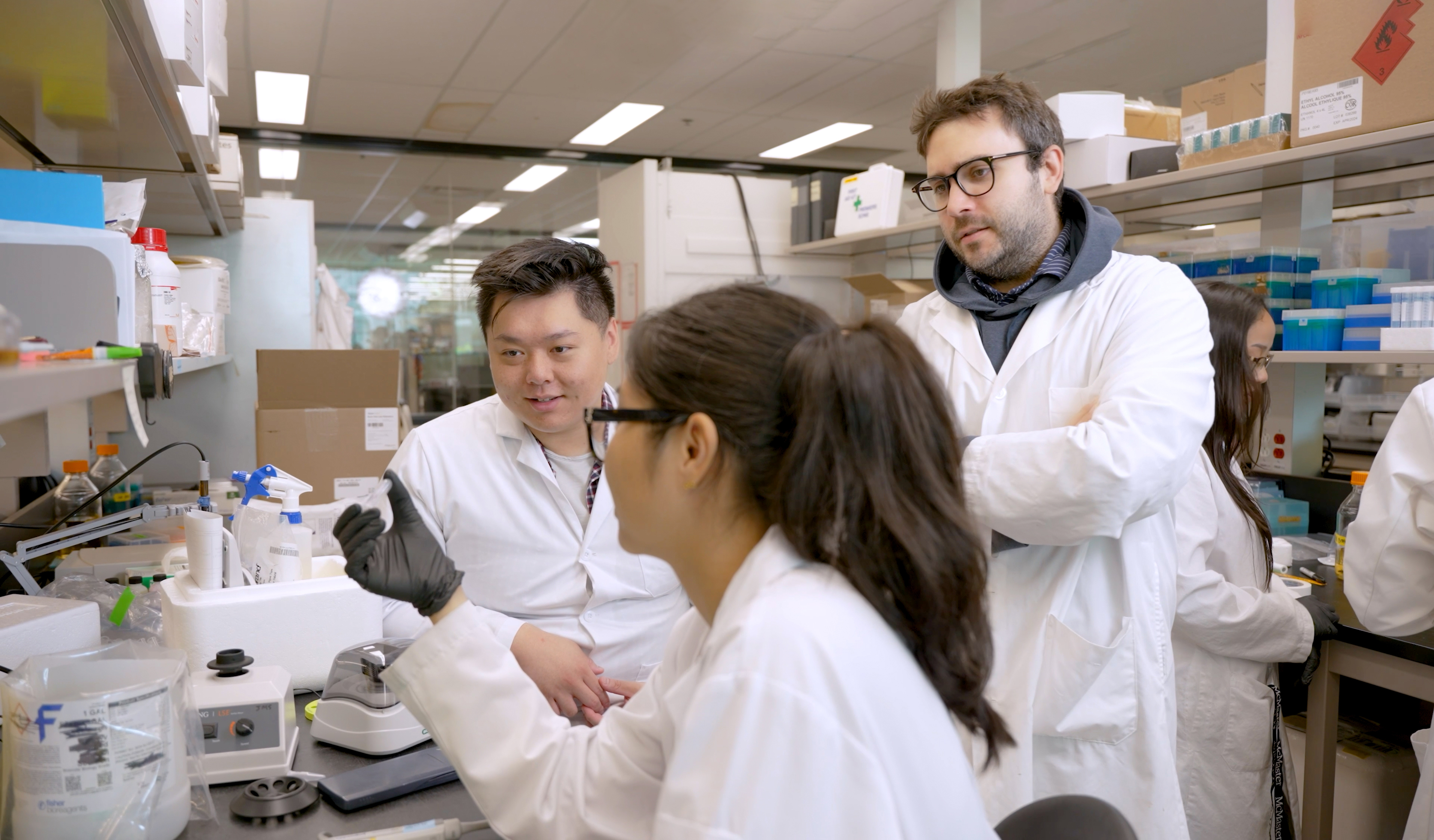
Artificial intelligence, data and the digital society
The ability of digital systems to perform tasks previously limited to human intelligence offers tremendous opportunity for the development of new drugs and therapeutics, engineering design and complex data analysis. McMaster researchers are at the forefront of ethical data management, data storage and data movement and will continue to advance our position as a pre-eminent academic source for data-driven decision making, information technology and machine learning.
Solutions with impact:
- Magnify the impact of AI in health care for drug discovery, treatment and diagnosis
- Develop new materials, devices and systems through AI and machine learning
- Produce devices, algorithms and protocols that underpin the continuing IT revolution
- Lead in design of quantum technologies for secure management of large data volumes
- Advance the study of the social, political and economic impacts of digital technologies

Addressing the growing burden of chronic disease
There is a significant physical, emotional and human toll for individuals, their families, and our health systems resulting from chronic disease. McMaster researchers – working in areas such as genomics, immunology, microbiology, medicine, population health, health policy and biostatistics – advance the understanding of the genesis of chronic disease to determine prevention, detection and management strategies.
Solutions with impact:
- Lead global population health studies and clinical trials to provide the evidence for the best health outcomes and treatments
- Advance our understanding of the relationship between disease development and our fundamental biology, genetic make-up, environmental exposures, and social conditions
- Integrate multidisciplinary approaches through bench-to-bedside research
- Address existing inequities in healthcare and advance collaborations with Indigenous people to improve health and well-being
- Facilitate collaborative research and knowledge transfer between industry, government, clinical and community partners

Civil society, cultures and sustainable prosperity
Our researchers examine the intricate linkages between societal structures, cultural dynamics, and sustainable growth. Their efforts make McMaster a leading source of expertise in developing ways to enhance the role of civil society. By advancing a greater self-awareness of the foundations on which our society is built, our social and cultural institutions are better prepared to guide us into a sustainable and prosperous future.
Solutions with impact:
- Address systemic inequalities and co-develop pioneering frameworks that empower marginalized communities
- Approach restorative justice with an emphasis on responsibility, redress, peacebuilding and societal repair
- Co-create knowledge to guide policymakers, educators and industry leaders in decision-making
- Foster research that respects multiple perspectives, ways of knowing and epistemologies
- Advance the study of cultures and societies past and present – regionally, nationally, and globally – to lay the foundations for a more equitable future
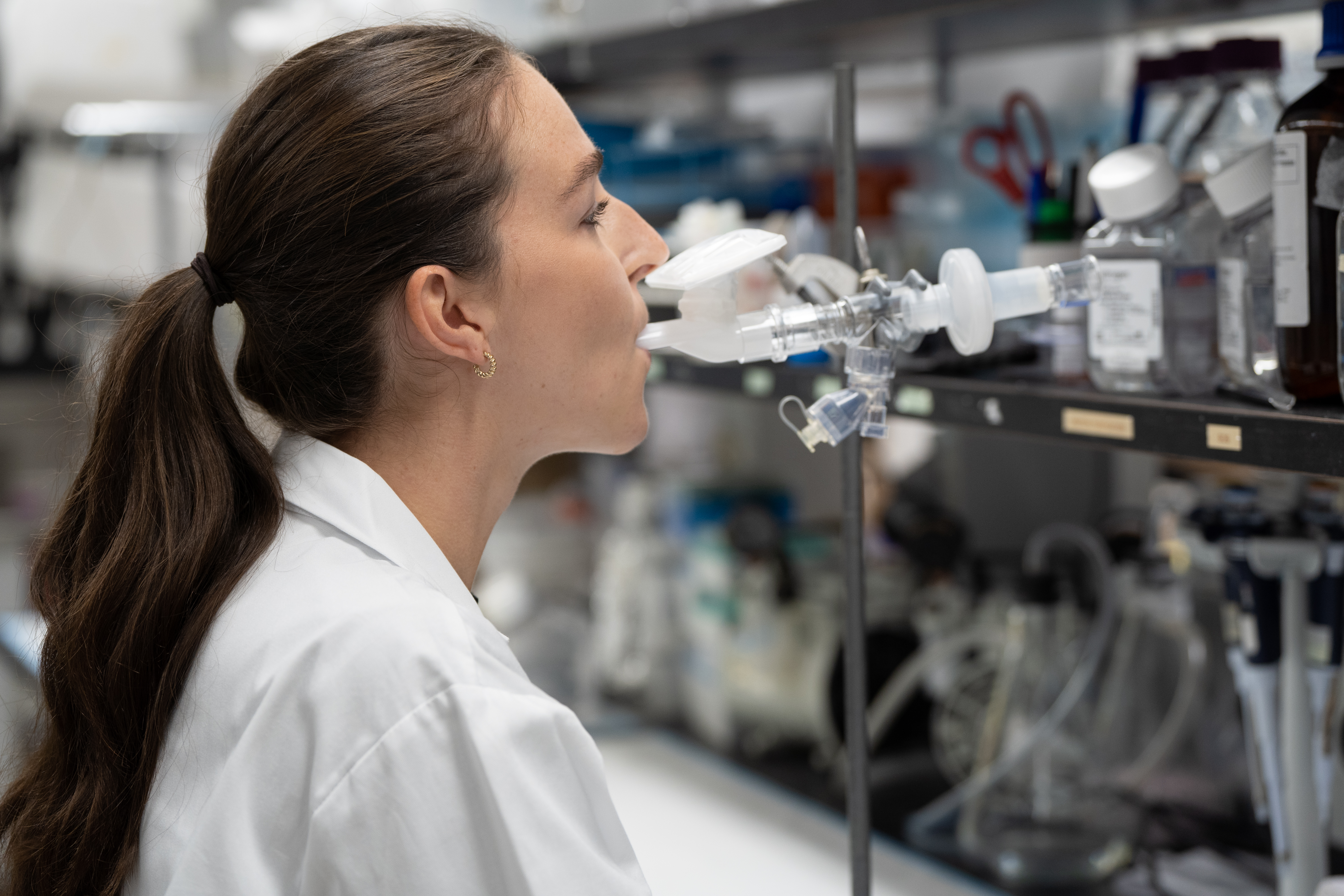
Transformative health innovations & technologies
Novel health innovations and technologies revolutionize healthcare systems and patient outcomes. From antibiotic discovery and vaccine development to biomaterials and biomanufacturing, McMaster researchers are transforming the way healthcare is delivered.
Solutions with impact:
- Modernize and future-proof our biomanufacturing facilities to develop novel technologies, therapeutics and vaccines and strengthen Canada’s competitiveness
- Lead, with hospital partners, clinical trials to evaluate the safety and efficacy of next-generation therapies
- Minimize the risk of airborne and foodborne illnesses through innovative technologies such as needle-free vaccines and pathogen-repelling coatings
- Facilitate partnerships with government, industry and academic stakeholders to expedite the transition from lab to market
- Address ethical gaps in health equity and access to healthcare so that potential life-saving innovations have the greatest chance of impact for all
- Advance knowledge, training and technologies to help prepare Canada for future health emergencies through Global Nexus and as co-lead of the Canadian Pandemic Preparedness Hub (CP2H)
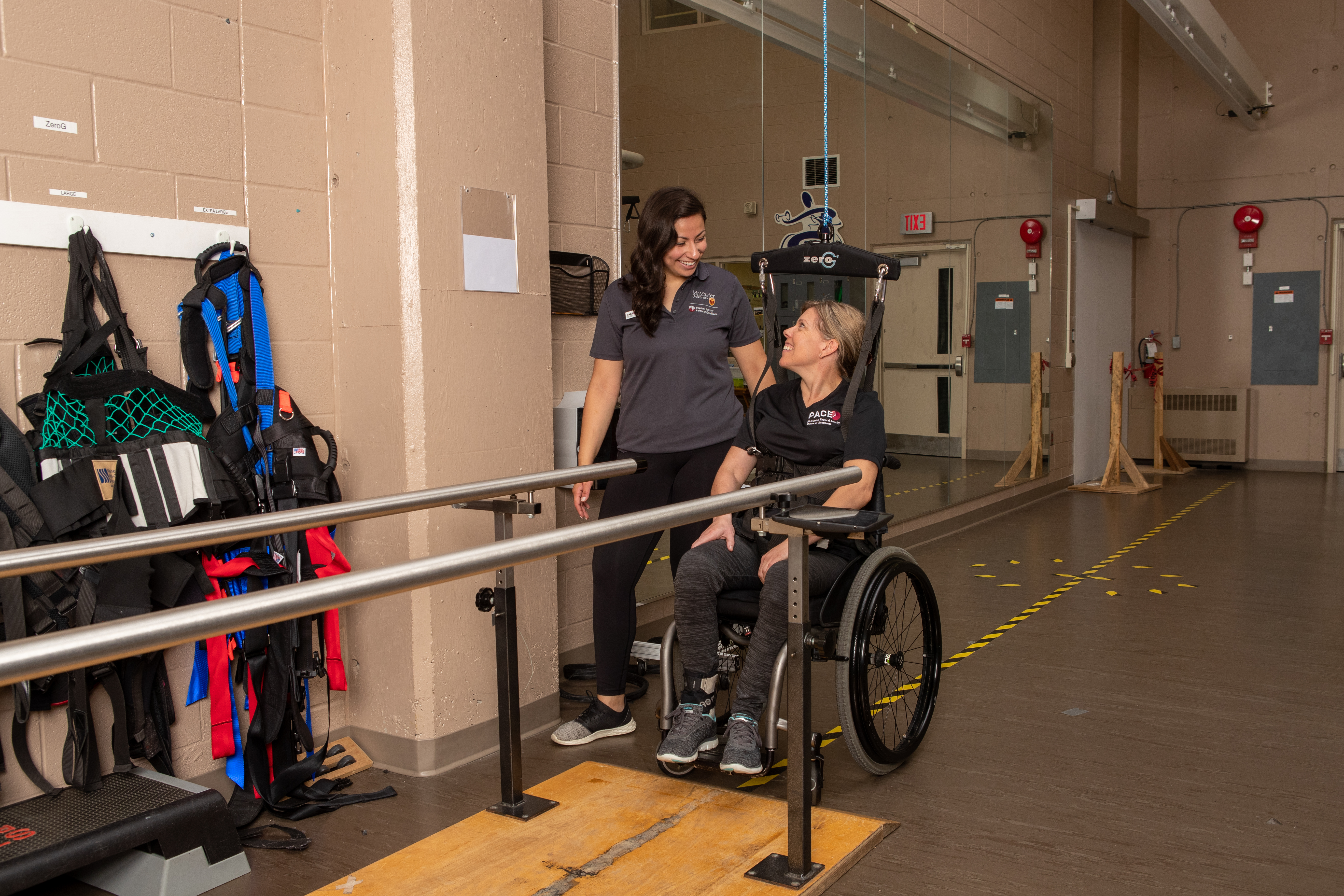
Promoting health and well-being across the lifespan
McMaster researchers work to improve physical, mental and social well-being – from prenatal and infant care through early childhood to late adulthood. We will continue to advance new pathways to improve access to healthcare and promote health and well-being.
Solutions with impact:
- Mobilize knowledge to remove barriers and empower individuals to make informed health decisions
- Optimize the health and longevity of Canada’s aging population through research, education and stakeholder collaboration
- Undertake research that explores Indigenous healing practices, traditional medicines, and holistic approaches to wellness
- Generate evidence-based results to inform government decision-making and policy development
- Deepen our commitment to work with community health-care organizations on solutions for at-risk populations

Maintaining and restoring a healthy environment
Understanding the profound effects of human activity and natural disasters on our environment is essential to devising and executing effective restoration strategies to prevent further degradation and ensure a sustainable environment. Our researchers are dedicated to the study of local and global ecosystems to develop innovative solutions that address and mitigate the impacts of climate change and contribute to the resilience and health of our planet.
Solutions with impact:
- Advance climate model technologies to predict and mitigate future climate change regionally and globally
- Chart the impact of human activities on freshwater and marine ecosystems to reduce future disruption
- Restore functional ecosystems following human and climate-mediated disturbances
- Co-create water security policies in local, Indigenous and global communities
- Accelerate Canada’s net-zero future goals through the development of sustainable technologies – thermal networks, energy harvesting, modular reactors, electric vehicles and sustainable transportation
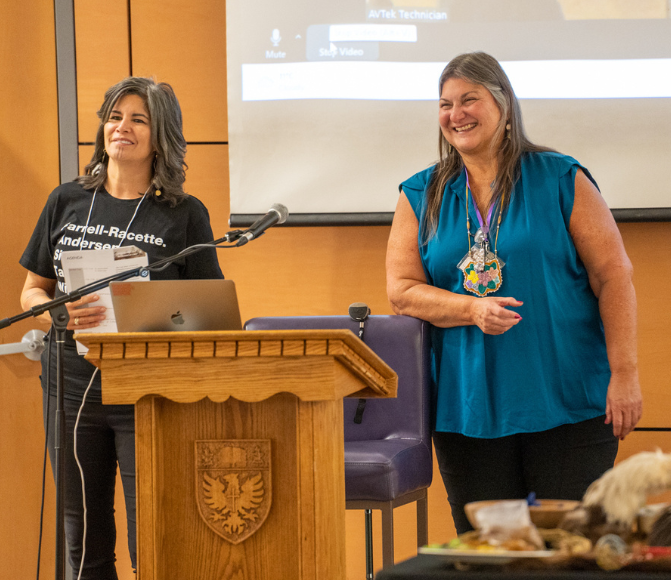
Advancing Indigenous knowledge and reconciliation
McMaster researchers work across disciplines in the development of innovative Indigenous research to inform and lead the systemic reform required to align with Indigenous self-determining strategies. Through authentic collaborations with Indigenous community partners, we’re recognized as a leader in Indigenous Knowledge and research and a trusted resource for other post-secondary institutions.
Solutions with impact:
- Advance the national research agenda to improve and promote the health of First Nations, Inuit and Métis Peoples in Canada
- Develop national and international partnerships to foster innovative learning and research opportunities through the Indigenous Health
Learning Lodge - Attract the next generation of Indigenous leaders through innovative and co-created programs
- Inform and generate Indigenous knowledge management and societal impact through research collaborations with non-Indigenous researchers, Indigenous communities, partners
and organizations - Enhance understanding of Indigenous Knowledge and reconciliation through strength-based research creation initiatives
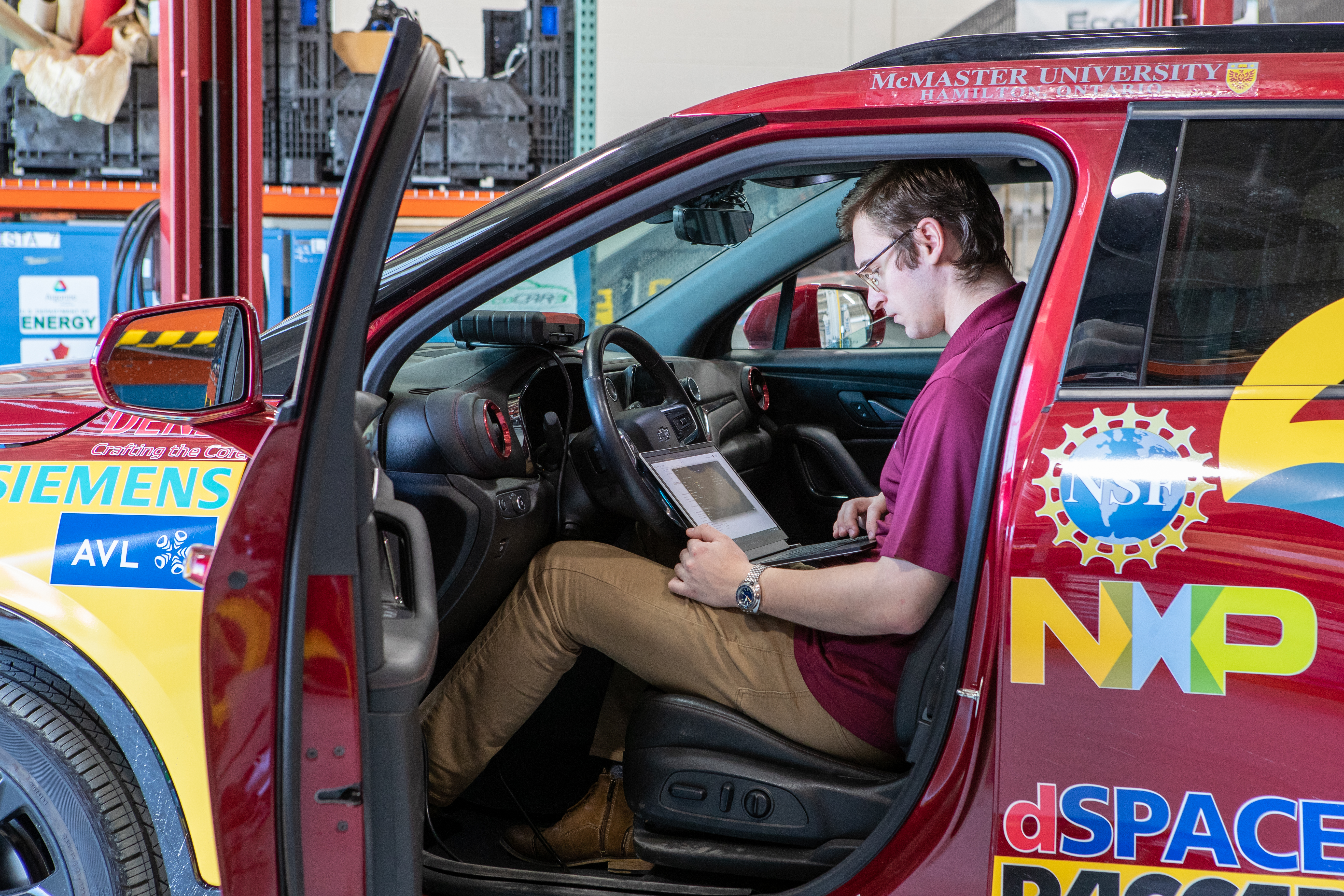
Advanced materials and manufacturing
McMaster plays a pivotal role in maintaining the global competitiveness of the Canadian hi-tech sector. Our efforts are amplified through collaborative research initiatives that promote sustainable solutions to challenging technological problems. From net-zero transportation, to nanotechnology to the design of materials using AI-inspired chemistry, McMaster takes a global lead.
Solutions with impact:
- Lead academic research in transportation electrification and smart mobility using sustainable and energy-efficient solutions
- Collaborate with industrial partners in the development of cutting-edge processes to support advanced manufacturing
- Leverage McMaster-led research in nanotechnology for sustainable energy storage, advanced photovoltaics, high-speed communication and integrated sensing
- Act as a centre of excellence for the study of advanced materials using state-of-the-art materials synthesis, spectroscopy, microscopy and modelling
- Advance the national strategy for semiconductors through development of novel materials and processes for silicon and compound semiconductor fabrication
- Foster partnerships with private and public stakeholder organizations to advance evidence-based solutions for the sustainable movement of goods and people

Realizing McMaster’s nuclear potential
As Canada’s Nuclear University, McMaster is maximizing its world-class nuclear facilities to drive innovations that benefit our local, national and global communities. Our multidisciplinary experts are making significant contributions to nuclear medicine, clean energy and next-generation materials to secure a healthier and more sustainable world.
Solutions with impact:
- Spearhead research and education in modular reactor safety, design and deployment
- Advance next-generation nuclear medicine diagnostics and treatments and modes of medical isotope delivery
- Lead Canada’s neutron scattering activity through the creation of a national beam facility headquartered at McMaster
- Test and qualify next-generation materials for application in new nuclear technologies
- Address equity, diversity, inclusion and Indigeneity in Canada’s nuclear future and empower the industry’s emerging leaders
- Secure our position as a leader in the commercialization of emerging nuclear-based technologies
- Develop a strategic advocacy plan to inform provincial, national and international nuclear policy
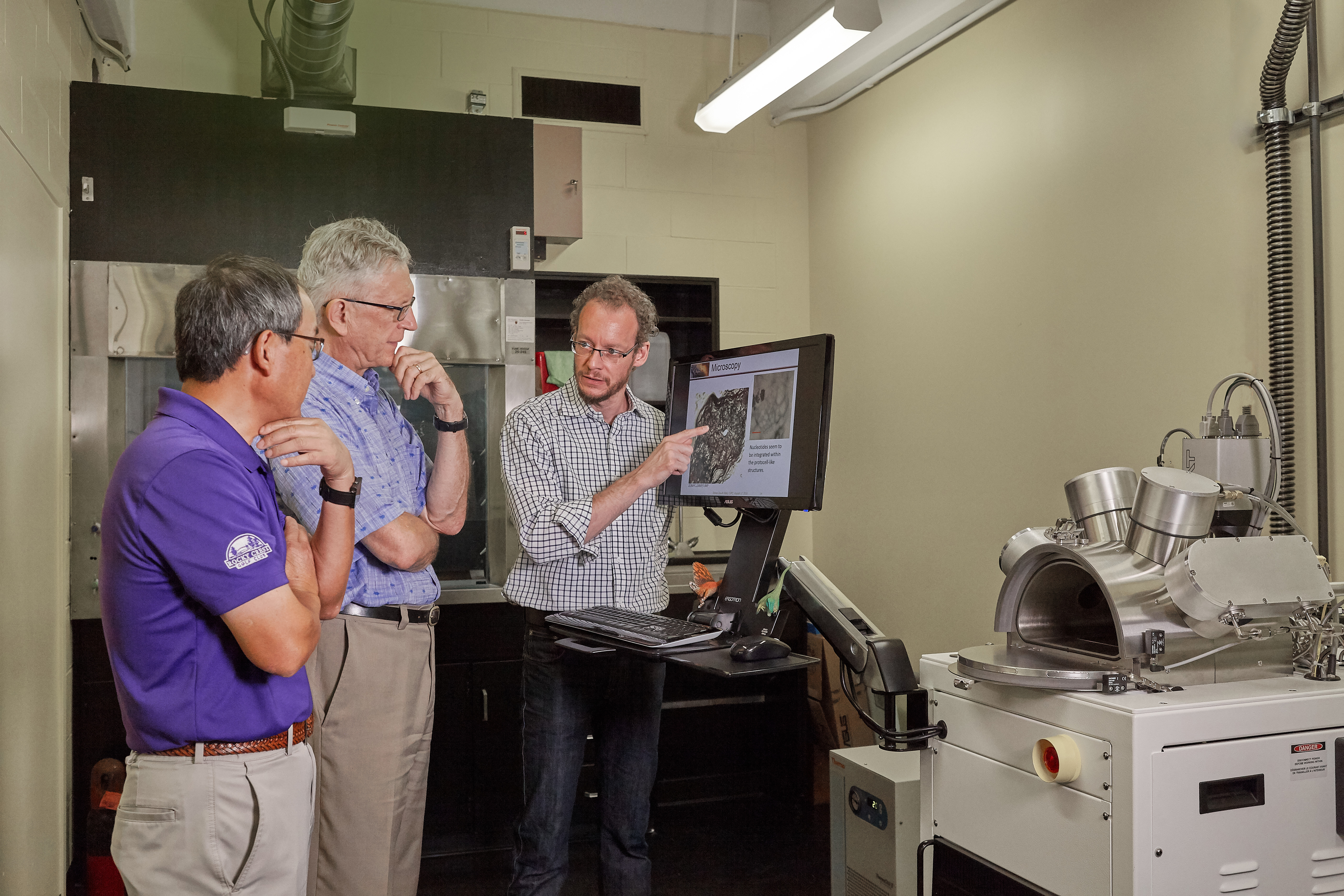
Exploring new frontiers
Curiosity drives our desire to explore new frontiers. It fuels discovery at the most fundamental level and is often the foundation upon which impactful outcomes are built. Our researchers are exploring the origins of the universe, probing the fundamental laws of nature, and are producing groundbreaking knowledge which helps shape our views of society and our need to connect.


